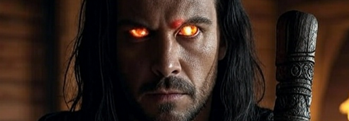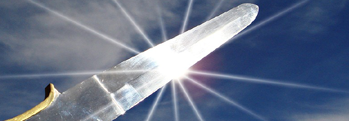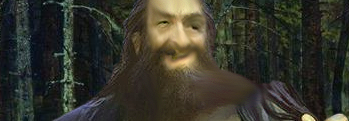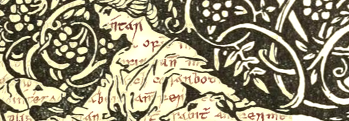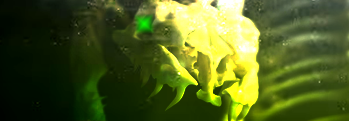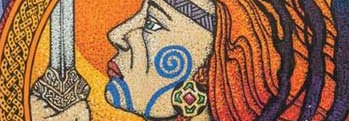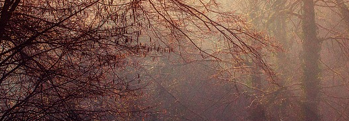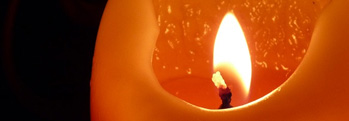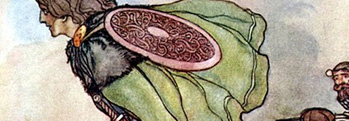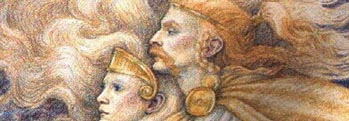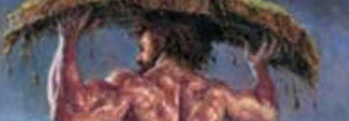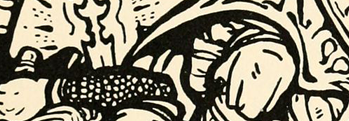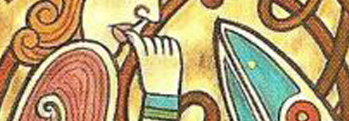The Tale of Viviann the Giantess
Irish and Celtic myths and legends, Irish folklore and Irish fairy tales from the Fenian Cycle
Great in body and heart
 One day Fionn Mac Cumhaill, doughty hero of Ireland, and his friends Goll, Cialta and Oscar, as well as others of the Fianna, were resting after the hunt on a certain long hill now known by a different name. Their meal was being made ready, when what should happen only a girl of the kin of the giants came striding up and sat down among them, a great long giantess.
One day Fionn Mac Cumhaill, doughty hero of Ireland, and his friends Goll, Cialta and Oscar, as well as others of the Fianna, were resting after the hunt on a certain long hill now known by a different name. Their meal was being made ready, when what should happen only a girl of the kin of the giants came striding up and sat down among them, a great long giantess.
“Did you ever see a woman so tall?” asked Fionn of Goll.
“In truth,” said Goll, “never have I or any other seen a woman so big!” She took her hand out of her cloak and on her long slender fingers there were three gold rings each as thick as a hero’s arm.
“Let us question her and find out what she wants,” said Goll, and Fionn said, “If we stood up, perchance she might be able to hear us, so tall is she.”
So they all rose to their feet, but the giantess, on that, rose up too. “Maiden,” said Fionn, "if you have anything to say to us or to hear from us, sit down and lean your elbow on the hillside.”
So she lay down and Fionn told her to say where she came and what she wanted with them.
“Out of the World over the tumultuous seas where the sun sets am I come,” she said, “to seek your protection, O mighty Fionn.”
“And what is your name?” he asked “My name is Viviann of the Fair Hair, and my father Treon is called King of the Land of Ladies, for he has but three sons and nine and seven score daughters, and near him is a king who has one daughter and eight score sons.
“To one of these, Æda, was I given in marriage sorely against my will. Three times now have I fled from him. And this time it was fishermen whom the wind blew to us from off this land who told us of a mighty lord here, named Fionn, son of Cumhaill, who would let none be wronged or oppressed, but he would be their friend and champion. And if you’re himself, it is to you I am come.”
Then she laid her hand in Fionn's, and he told her to do the same with Goll mac Morna, who was second in the Fiann leadership, and she did so.
Then the maiden took from her head a jewelled golden helmet, and immediately her hair flowed out in seven score tresses, fair, curly and golden, at the abundance of which all stood amazed, and Finn said,
“By the gods that we adore, but King Cormac and the poetess Eithne and the fair women-folk of the Fianna would deem it a marvel to see this girl. Tell us now, maiden, what portion will you have of meat and drink, for I see you are tired after your journey? Will that of a hundred of us be enough for you?”
The girl then saw Cnu, the dwarf harper of Finn, who had just been playing to them, and she said, “Whatever you give to yon wee man that bears the harp, be it much or little, the same, O Fionn, will suffice for me.”
Then she begged a drink from them, and Finn called his footman, Saltran, and told him to fetch the fullness of a certain great goblet – although in truth more of a barrel – with water from the ford. Now this goblet was of wood, and it held as much as nine of the Fianna could drink. The maiden poured some of the water into her right hand and drank three sips of it, and scattered the rest over the Fianna, and she and they burst out laughing.
Finn said, “By the winds, girl, what convinced you not to drink out of the goblet?”
“Never,” she replied, “have I drunk out of any vessel but there was a rim of gold to it, or at least of silver.”
And now Cialta, looking up, saw a tall youth coming swiftly towards them, who, when he approached, seemed even bigger than was the maiden and of her stock.
He wore a rough furry cape over his shoulder and beneath that a green cloak fastened by a golden brooch. His tunic was of royal satin, and he carried a red shield slung over his shoulders. A spear with a shaft as thick as a man's leg was in his hand, a gold-hilted sword hung by his side. And his face, which was smooth-shaven, was more handsome than that of any of the sons of men.
When he came near, seeing among the Fianna a stir of alarm at this apparition, Fionn said, “Everyone settle down and raise not a finger, let neither warrior nor servant speak to him. Know any of you this champion?”
“I know him,” said the maiden, “that is the one I flee from, the one from whom I sought your protection, O Fionn.” And she sat down between Fionn and Goll. But the stranger drew near, and spoke never a word.
Before anyone could tell what he intended, he thrust fiercely and suddenly with his spear through the girl, and the sperhead stood out a hand’s breadth at her back. She fell gasping, but the young man pulled his weapon out and sprang swiftly through the stunned crowd and away.
Then Fionn cried, red with wrath, "You have all seen! Avenge this wicked deed, or none of you aspire to being in the Fianna again!”
The whole warband sprang to their feet and gave chase to that murderer, save only Fionn and Goll, who stayed by the dying maiden. They ran him down over hill and plain to the great Bay of Tralee and down to the Tribute Point, where the traders from abroad came to to pay their dues, and there he set his face to the West and took the water.
By now four of the Fianna had outstripped the rest, namely, swift-footed Cialta and Dermot, as well as Glas and Oscar, son of Oisín. Of these Cialta was first, and just as the giant was mid-leg in the waves he hurled his spear and it severed the thong of the giant's shield so that it fell off in the water.
As the giant paused, Cialta seized the spear from his hands and tore it from him. Seeing he was outdone, the giant waded on, and soon the Fianna were floundering in deep water while the huge form, thigh deep, vanished into the distance, striding towards the setting sun.
A great ship seemed to draw near, lifting up the giant, and then departed into the light of the setting sun, but the Fianna returned in the grey evening, bearing the spear and the great shield to Fionn. There they found the maiden at point of death, and they laid the weapons before her.
“Fine indeed are these arms,” she said, “for that is the Thunder Spear of the King beyond the ocean and the shield is the Red Branch shield,” for it was covered with red knotwork. Then she gave her bracelets to Fionn's three harpers – the dwarf Cnu, Blathnaid his wife, and the harper Daira.
She told Fionn to care for her burial, that it should be done properly, “for under your honour and protection I found my death, and it was to you I came into Ireland.” So they buried her and lamented her, and made a great far-seen mound over her grave, which is today called the Ridge of the Dead Woman, and set up a pillar stone upon it with her name and lineage carved in Ogham.
That was not far from Tralee bay, marked on the map below!
More Legends from the Fenian Cycle
Mongán mac Fíachnai was a prince of the Gaels, none other than he whose father was Fíachnae mac Báetáin, and it was about the seventh century in Ireland when he ruled over Ulster. Many are the tales told of him and his royal reign, with some even whispering that he was the son of Manannán mac Lir, ancient G ... [more]
The Corleck stone head is believed to be an ancient pagan idol, representing perhaps some ancestor or deity from the pre-Christian era in Ireland. The most striking aspect of the Corleck stone head is its three faces, set in strange, almost unsettling expressions, all the more remarkable for their simplicity of design, lacking ears or detailed feat ... [more]
The Clonoura shield was discovered standing upright in a bog in Clonoura, county Tipperary and represents one of the very few fully intact Iron Age shields that have ever been found. It is marked with many slash and stab scars from knives, swords, spears and other sharp weapons, and dates from 30 to 60 AD, pre-Christian Iron Age Ireland. It is q ... [more]
The days of the heroes of the Fianna have captured the imaginations of many throughout the ages, and one such was the ninth century poet Gofraidh Fionn O’Dalaigh, one of the finest poets in all of Killarney and all of Ireland. For it was his pen and none other that first put quill and ink to parchment and recorded the old story of Reicne F ... [more]
It was a fine day in Ireland many years ago when Fionn and his Fianna took a fancy to go out hunting. Warm was the sun amid the whispering glades of ancient forests, gentle was the breeze and sweet the scent of summer flowers in its bosom. Sweeter yet was the sight of a mighty deer to the eyes of the hunters, and so they gave chase, howling with de ... [more]
It was in the days of Fionn and the Fianna, a very long time ago in Ireland, that the people of Ben Edair decided to hold a festival, a Feis or Aonach, to celebrate the season. All of Fionn’s hosts were gathered, the seven ordinary warbands and the seven extraordinary warbands, and they danced and played music merrily with the people. Then ... [more]
There are few these days who have not heard of Fionn Mac Cumhaill, hero and defender of Ireland, or at least might recognise his name. But there were no creatures that Fionn loved amongst his three hundred dogs more than his two favourites, Bran and Sceolan, meaning Raven and Survivor, and though it’s a stranger story than most, this is the t ... [more]
It is not unusual for stories in the Irish legendarium to have more than one meaning besides that of a literal recounting of historical events, whether by accident or by design. Some tales were meant to be understood in the context of the era and culture of the story teller, while others might instruct in certain arts, and yet others contain myster ... [more]
Those monks who recorded the mythologies and folklore of Ireland which had previously been passed down by word of mouth from bard to druid to bard for countless generations were, by their very nature, devout Christians. As Christians they were dedicated to not only God and His Church, but to the people who bore and nurtured them, and everywhere the ... [more]
One day Fionn Mac Cumhaill, doughty hero of Ireland, and his friends Goll, Cialta and Oscar, as well as others of the Fianna, were resting after the hunt on a certain long hill now known by a different name. Their meal was being made ready, when what should happen only a girl of the kin of the giants came striding up and sat down among them, a grea ... [more]
Something which often appears in the most ancient tales of Ireland is the grisly vision of heads which speak after being separated from their bodies! This was said to be an art of the druids inherited from the necromancy of the Dé Danann, who were themselves said to be able to raise a whole army from the grave to fight again day after day! ... [more]
There once was a young fellow called Conall, and he lived with his parents in the east of the country. They lived a quiet life, catching fish and digging up oysters for meat and lamps, but one dark day the Fomors came and demanded tribute. Having none to give, his father bid the sea demons begone, but instead they made to take himself and his famil ... [more]
Young Fionn Mac Cumhaill was out walking with his dog Bran one fine morning, and he happened to pass into a deep and thick dark wood of the kind that once covered all of Ireland, for the hunting was better there, when what did he come across but a thousand horses hauling timber and men chopping down the trees and preparing the logs. "What a ... [more]
There was a mighty warrior in the west of Eriu, and Cumhal Mac Art was his name. Feared was his axe and he could skewer two men with a single cast of his feathered war-dart, and yet for all that he lived a lonely life, and a life of fear – for it had been foretold that should he ever marry, he would die in battle the very next day! But all ... [more]
It was in the day of Fionn Mac Cumhaill when he was an old man, yet still hale and hearty, that one of his warriors, whose name was Diarmaid son of Donn and grandson of Duibne, had carried off his young bride-to-be, Gráinne daughter of Cormac! The two had fallen in love and Gráinne, for all of Fionn's fame, wanted nothing to do wi ... [more]
One warm summer's day Fionn and his men were out hunting through the darkling forests of Ballachgowan in Munster, chasing deer and boar through the gloomy glades, when they stopped short all of a sudden and came face to face with a startling sight! For what had stepped between them and their prey but a strange, damp giant of a man. Black wer ... [more]
Fionn Mac Cumhaill stood at the door of his hunting lodge with his fists on his hips, his heart sinking as he realised his intentions to hunt for deer this day were lost in the waves of mist and fog that had rolled in from Dublin bay, although at that time it was known by a different name. It had come as far inland as Gleann na Smol, the Glen of th ... [more]
When Fionn Mac Cumhaill became leader of the Fianna, the fiercest and most warlike of those bands of heroes who lived in the wild places, hunting and acting as champions for their kings, and defending Ireland from evil, he decided that he wished to have only the best warriors to follow him. So he sat down and sucked his thumb to taste the wisdom ... [more]
Close by where Limerick city stands today lie the ruins of an ancient and once mighty fortress called Carrigogunnel, which commanded all the lands about with a stern hand. It was known then as a place of ill omen, and it is known today as the same, for it was once the home of an uncanny hag by the name of Gráinne. Amid the surrounding mar ... [more]
A dark horde of fell-handed warriors approached Ireland, sails gathered off the coast like storm clouds, billowing out in the gusts of uncertain wind, while oars bent to the rolling thunder of drums. Fierce indeed was the host of King Colgan, master of Lochlainn, and he came to make war on Cormac Mac Airt, High King of Ireland! As soon as Fionn ... [more]
Diarmuid the Fair, son of Donn or Duibhne of the Tuatha De Danann was one of the Fianna, the great warriors of ancient Ireland who protected the land from dangers near and far. It was said that no woman could resist his gaze, for he'd been granted the blessing of comeliness by the Ghost Queen Morrigan after he helped her out of a spot of bother ... [more]
Fionn Mac Cumhaill and the rest of the Fianna were resting after a great battle, weary and sore with sorrow at the loss of their fellows, when they spied coming along the shores of Loch Lein in County Kerry a beautiful young woman riding a swift horse, so swift indeed that its hooves scarcely seemed to touch the ground! Now although the women of ... [more]
Now it is known by some that the fairies of Ireland weren't much like the fairies we hear about in these latter days, harmless things of mischief and frolic, but were instead respected and often feared, for their anger was quick and their kindness was whimsical. Some would join men in battle, and some would make war on men, others were omens of ... [more]
It was a fine brisk spring morning in Ireland when Fionn Mac Cumhaill decided to take himself for a stroll along the white sandy beaches of the seashore, the better to breathe the air and enjoy the simple pleasures life had to offer. But that morning, life had more to offer and it didn't look pleasant, for it was a giant bearing down on the bea ... [more]
Fionn MacCumhaill was well known as a fair and handsome man, but his most distinguishing feature was his grey hair - and he was not born with it! Fionn was one time out on the green of Almhuin, and he saw what had the appearance of a grey fawn running across the plain. He called and whistled to his hounds then, but neither hound nor man heard hi ... [more]
After his seven years of training with the poet Finegas were done, Fionn Mac Cumhaill took himself from the river Boyne to the great hall of the High King in Tara, Conn of the Hundred Battles, to present himself there as a member of the Fianna, the very best of the best warriors throughout Ireland. Announcing himself, Conn took him into the band an ... [more]
Here is the story of how Fionn MacCumhaill gained the knowledge of the world. And wouldn't it be a great thing to know it all? Still, knowledge and wisdom must be balanced, and this was known to the young man called Fionn, which means fair and bright. He was fleeing from the warriors who had murdered his father when he came upon the hiding plac ... [more]




